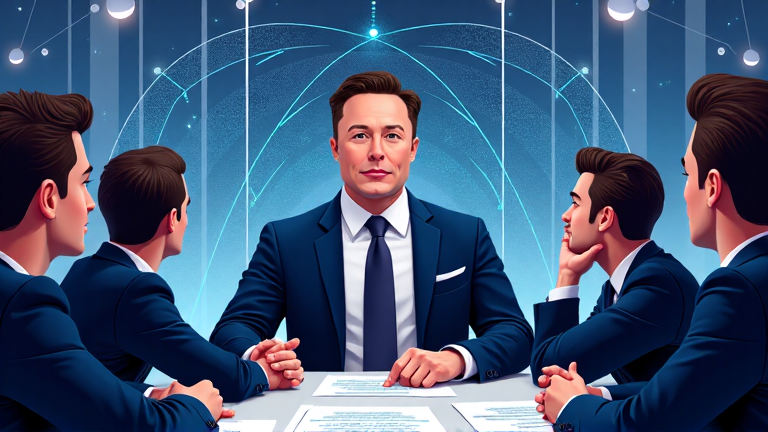
Published At: Feb. 16, 2025, 6:36 p.m.
OpenAI Declares 'Not for Sale' Amid $97.4 Billion Takeover Attempt
In a decisive move, the board of OpenAI unanimously rejected Elon Musk's ambitious $97.4 billion bid to acquire the company. The rejection underscores OpenAI's commitment to its mission and its resolve to remain independent.
Key Developments
- Takeover Rejection: OpenAI's board announced that the firm is not for sale, dismissing Musk's proposal as a disruption to competitive dynamics.
- Board Statement: Bret Taylor, chair of OpenAI's board, stated, "OpenAI is not for sale. Any potential reorganization of OpenAI will strengthen our nonprofit and its mission to ensure artificial intelligence benefits all of humanity." This public declaration reinforces the company’s strategic focus on its long-term mission.
- Legal and Strategic Implications: OpenAI attorney William Savitt communicated the board’s decision to Musk’s legal team, emphasizing that the offer did not serve OpenAI's interests.
- Musk’s Position: Amid previous tensions, an attorney representing Musk suggested that the bid would be withdrawn unless OpenAI halted its ongoing transition from a nonprofit to a for-profit model—a move that had sparked legal challenges from the Tesla CEO last year.
- Personal Remarks: OpenAI CEO Sam Altman weighed in during a Bloomberg interview, attributing Musk's proposal to personal insecurity about his own AI venture, xAI. Altman remarked, "I don’t think he’s like a happy person. I do feel for him," adding that stronger competition through superior products would be a preferable approach.
Background and Broader Context
- Historical Ties: Elon Musk was an early investor in OpenAI a decade ago but departed in 2018 following differences with the company's leadership. These past conflicts appear to add a personal dimension to the current dispute.
- Strategic Shifts: Altman has defended OpenAI’s move toward a for-profit model, a strategy aimed at attracting investment necessary for scaling the company’s cutting-edge technologies.
- External Collaborations: The AI landscape is also witnessing significant partnerships. In January, President Donald Trump unveiled a $500 billion "Stargate Project" in collaboration with major tech firms including Oracle and SoftBank, aimed at bolstering AI infrastructure in the United States. Musk’s response on social media questioned the financial solidity of these partnerships.
The unfolding events signal a period of intense competition and strategic repositioning in the AI sector, as stakeholders from various realms vie for influence over the future of artificial intelligence.
Original Source:
OpenAI board ‘unanimously’ rejects Elon Musk’s $97.4 billion bid for company
(Author: Michelle Del Rey)
Note: This publication was rewritten using AI. The content was based on the original source linked above.
← Back to News
Note: This publication was rewritten using AI. The content was based on the original source linked above.